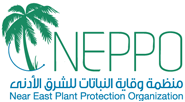In response to member request and in the framework of letter of agreement with the sub-regional office of FAO in Tunisia, NEPPO organizes a workshop on “Pest surveillance and related ISPMs” in Rabat. Morocco on September 22-24, 2014
Pest surveillance is a basic activity of National plant protection Organization (NPPOs). Surveillance allows NPPOs to establish list of pests by crop occurring in the country, to establish list of regulated pests and to provide commercial partners with useful information to elaborate PRA.
The aim of the workshop is to strengthen capacities of members in implementing ISPM6 and all related ISPMs (4, 8, 17 and 26), to share experience on surveillance programmes undertaken in each participant countries, to identify implementation problems et and to elaborate draft surveillance programme.
Thirteen participants representing 6 country members as Egypt, Jordan, Morocco, Pakistan, Sudan and Tunisia., a representative of the Sub-regional bureau of FAO in Tunisia and of UMA.
Three session
Session 1: Presentation of the international standards related to surveillance
– ISPM 6 on Pest Surveillance. Chouibani (NEPPO)
– ISPM 4 on Pest Free Area (PFA) and pest specific standards on PFA (fruit flies) Chouibani (NEPPO)
– ISPM 8:Determination of pest statut in an area . Chouibani (NEPPO)
– ISPM 17 on Pest reporting. Chouibani (NEPPO)
– ISPM 26: Establishment of pest free area for fruit flies (Tephritidae). Chouibani (NEPPO)
Session 2 Countries’ experiences with surveillance
– Egypt_Ralstonia solanacearum_Ar Dr. Mohamed REFAAT RASMY
– Jordan_Survey plan. Imad ALAWAD
– Morocco. Dr. Bouabid LBIDA
– Surveillance; control of Fruit fly_Pakistan. Azam KHAN
– Surveillance des organismes nuisibles_Sudan Kamaleldin AMEIN BAKR
– Charançon rouge du palmier_Ar. Hamda CHEBBI
Session 3 Case studies
– Red Palm Weevil
– Huanglongbing disease and its vectors
At the end of the workshop, participants made these recommendations:
• Organize such workshops to build capacity for implementation of international standards for phytosanitary measures and encourage countries to participate;
• Necessity to undertake general and specific surveillance programs and establishment of distribution maps and update lists of regulated pests
• adopt official reporting of pests by member countries
• create a virtual information exchange system between experts in plant protection in the region
• update the FAO official contact points





